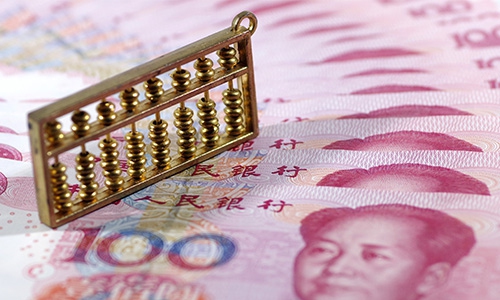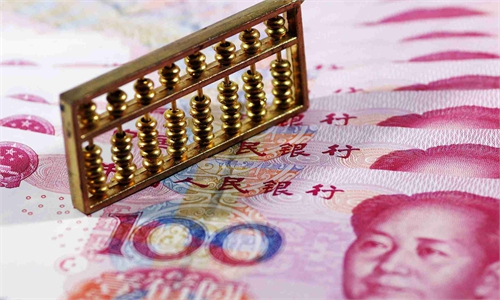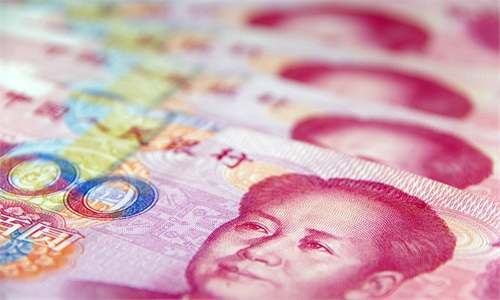
Renminbi Photo: VCG
Russia's recent launch of the yuan and Hong Kong dollar denominated open-ended fund is the latest example of the Chinese currency's quickened pace of internalization, in large part because of overseas investors' growing interest in holding Chinese financial assets, experts said.
The open-ended equity fund was launched by Rosbank Capital, registered with the central bank of Russia, Rossiyskaya Gazeta reported.
The fund will be used to invest in Chinese equities listed on the Hong Kong stock exchange and the fund will be traded on the St. Petersburg stock market, the report said.
The fund is set up to expand Rosbank's investment portfolio and meet rising customer needs in the country, given limited opportunities to buy foreign assets there, the report said, citing Oleg Galkin, the general manager of Rosbank Capital.
The move by Rosbank comes after RUSAL, the top aluminum producer in Russia, intends to issue a 5-billion yuan exchange-traded bond. The targeted coupon rate of the bond is set at approximately 3.8 percent, according to Rossiyskaya Gazeta report.
RUSAL announced the first batch of yuan denominated bond placement in July, with its coupon rate fixed at 3.9 percent with a total value of 4 billion yuan. Market demand for the bond exceeded the offering by more than 100 percent, the company said.
"It seems natural to us to choose yuan denominated bonds placement, given the current situation on the financial market. We see a significant demand for the bond, both from Russian banks and from private investors," said Alexei Grenkov, head of Corporate Finance of RUSAL.
The offerings will boost China and Russia's economic ties through deepening financial cooperation and internationalization of the yuan, Chen Jia, an independent research fellow on international strategy, told the Global Times on Monday.
Investing in Chinese financial assets could also play a positive role in boosting Russia's long-term economic growth and getting rid of its financial market's excessive dependence on the US dollar system, Chen said.
Russia is increasing financial cooperation with China amid abroad-ranged economic and financial blockade by the US and its allies, Dong Dengxin, director of the Finance and Securities Institute of Wuhan University of Science and Technology, told the Global Times on Monday, adding that yuan may be adopted in more scenarios in Russia.
As Russia is reducing US dollar and euro reserves, the nation needs to increase yuan reserves, while expand the use of yuan in international trade, Dong noted.
Taking Russia and India for instance, Dong said that as both countries have relatively low foreign exchange reserves, they could choose yuan as a mutually acceptable third-party currency for transactions, which may also accelerate yuan internationalization, Dong said.



